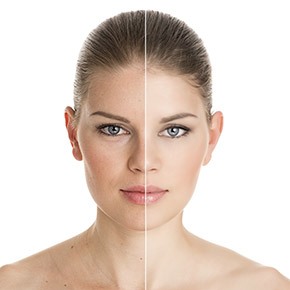Laser Treatment for Rosacea in Manhattan: What to Know?
Are you aware of the term “Rosacea”? Rosacea is a skin condition that causes the blood vessels in your face to become visible and to appear red. Pus filled bumps, patches are other common symptoms.
Affecting over 16 million Americans, Rosacea is not a dangerous disease. But it can make you feel self conscious when your symptoms flare up.
Dermatologists have found ways to treat rosacea symptoms with light and laser treatment for rosacea in Manhattan. Different types of lasers target different aspects of rosacea.
Let’s learn more about Laser Treatment For Rosacea In Manhattan works.
Types of laser treatment for Rosacea
The laser treatments target the symptoms of thickening skin, redness, and recurring patches of blood vessels that occur on the face. There are different types of laser treatment for rosacea in Manhattan including the following:
Erbium YAG laser: This laser treatment targets the visible blood vessels. Additionally, it is used to correct the extra tissue that can make the nose look bulbous.
Pulsed-dye lasers:Cynosure, V Beam, and V-Star are names for this type of laser treatment. With this laser treatment, light is pulsed at an optimal wavelength to penetrate vascular lesions, or blood vessels that are visible. Dye is used to make the laser beam of different colors, which aims to reduce the look of redness and inflammation.
CO2 lasers: These types of lasers are called ablative lasers. The main aim is to reshape your nose or other parts of your body that has been enlarged or scarred by rosacea inflamed tissue. Also, CO2 laser treatment are normally used to treat rhynophomas (thickened skin or puffy shapes on your nose) that are caused by rosacea.
How effective is it?
The American Academy of Dermatologists states that the lasers that are used to treat the blood vessels have excellent results. Patients see a 50 to 75 percent reduction in their symptoms after one to three treatments.
The bottom line:From what we know so far about laser treatment for rosacea, the treatment is effective and not painful. There are some people who shouldn’t get this type of treatment.
Find a dermatologist to discuss your symptoms to determine if you’re a good candidate for laser therapy.
There’s no cure for rosacea. Even though the results of laser treatment for rosacea may be impressive in some case studies, the results do fade over time. Keep this in mind as you weigh the costs, time commitment, and side effects.
This treatment is helpful for some symptoms of rosacea, and results will last for three to five years.


Comments
Post a Comment